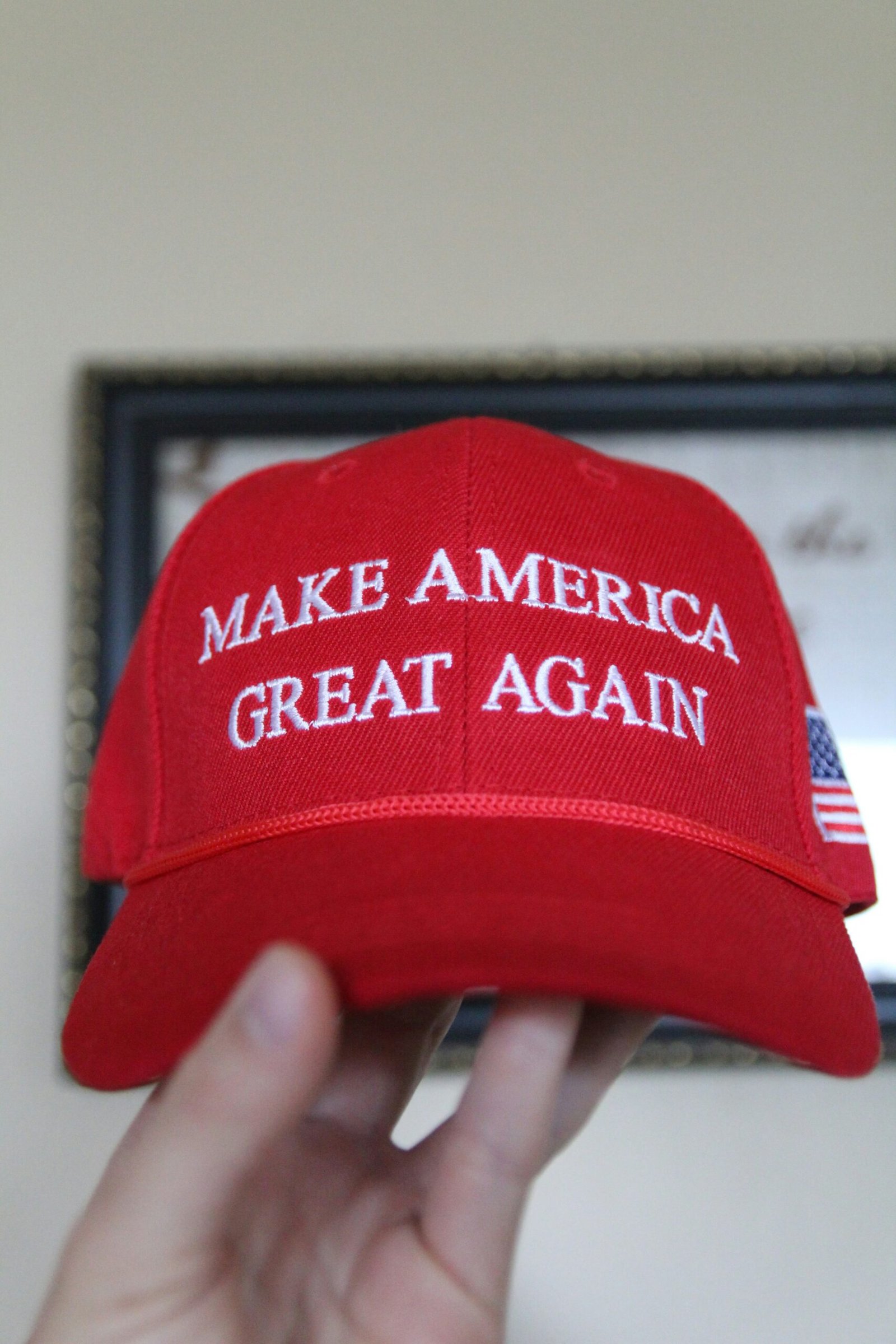Introduction: The Trump trial has reached a critical juncture
The Trump trial has reached a critical juncture, with recent developments centering around Michael Cohen’s testimony. As the case progresses, the stakes for the prosecution have never been higher. Michael Cohen, once a close confidant and personal attorney to Donald Trump, has emerged as a pivotal witness whose testimony could significantly influence the trial’s outcome.
The importance of Cohen’s statements cannot be overstated. His inside knowledge of Trump’s business dealings and personal affairs offers a unique perspective that the prosecution hopes will bolster their case. The prosecution team, aware of the trial’s high-profile nature and potential political ramifications, is meticulously strategizing to ensure Cohen’s testimony is both credible and impactful.

Donald Trump, the central figure of the trial, faces a myriad of charges that could have far-reaching implications for his political and personal future. The prosecution’s success hinges on their ability to present compelling evidence, of which Cohen’s testimony is a cornerstone. Any misstep in presenting or corroborating Cohen’s account could undermine their case and, by extension, their broader objectives.
In this high-stakes environment, the prosecution team is acutely aware of the trial’s broader implications. A successful prosecution could set a precedent for accountability and reinforce the legal system’s integrity. Conversely, failure could embolden those who seek to evade justice through influence and power.
As the Trumo trial advances, all eyes are on the courtroom, where the interplay between the key players—Trump, Cohen, and the prosecution—will determine the course of this landmark legal battle. The coming days will be crucial, with Cohen’s testimony poised to be a defining moment in this historic trial.
Trump trial-Background of the Case
The Trump trial case against former President Donald Trump has garnered significant attention due to its high-stakes nature and the complex web of events that have led to the current trial. Trump faces multiple charges, including allegations of financial fraud and obstruction of justice. These charges stem from a series of investigations that have scrutinized his business practices and political conduct.
Central to the prosecution’s case is Michael Cohen, Trump’s former personal attorney and fixer. Cohen was once a trusted member of Trump’s inner circle, known for his loyalty and willingness to undertake sensitive tasks on behalf of his boss. However, Cohen’s fortunes changed dramatically in 2018 when he pleaded guilty to multiple charges, including tax evasion, bank fraud, and campaign finance violations. These charges were partly related to hush money payments made during the 2016 presidential campaign to silence allegations of extramarital affairs involving Trump.

In a bid to reduce his sentence, Cohen cooperated with federal prosecutors, providing crucial testimony and evidence against Trump. His cooperation has been pivotal in shedding light on the intricate workings of Trump’s business empire and the alleged misconduct that has now resulted in formal charges. Cohen’s previous testimonies before Congress and other judicial bodies have been marked by detailed accounts of Trump’s directives and actions, which Cohen claims were often aimed at circumventing legal and ethical boundaries.
The current trial represents the culmination of years of investigative efforts and legal battles. Prosecutors are now relying heavily on Cohen’s testimony to substantiate their case against Trump. Given Cohen’s intimate knowledge of Trump’s operations and his willingness to cooperate, his testimony is expected to be a cornerstone of the prosecution’s strategy. The challenge for prosecutors, however, lies in ensuring that Cohen’s testimony is perceived as credible despite his own legal troubles and the potential biases stemming from his past relationship with Trump.
Trump trial-The Importance of Cohen’s Testimony
Michael Cohen’s testimony holds significant weight in the prosecution’s case against former President Donald Trump. As Trump’s former personal attorney and confidant, Cohen possesses firsthand knowledge of key events and decisions that are central to the trial. Cohen is expected to provide detailed accounts of Trump’s alleged involvement in various criminal activities, including campaign finance violations and obstruction of justice. His statements could offer crucial corroborative evidence that links Trump directly to these activities, thereby strengthening the prosecution’s arguments.
Specific points that Cohen is anticipated to testify about include the coordination and execution of hush-money payments to silence individuals who posed potential threats to Trump’s 2016 presidential campaign. Additionally, Cohen is likely to shed light on Trump’s alleged attempts to manipulate financial statements and other documents to mislead banks and insurance companies. These revelations could significantly impact the trial’s outcome by establishing a pattern of illegal behavior directly connected to Trump.
However, Cohen’s credibility poses a considerable challenge for the prosecution. Given his previous convictions for lying to Congress and other fraudulent activities, the defense is expected to question the reliability of his testimony vigorously. To mitigate these credibility issues, prosecutors plan to corroborate Cohen’s statements with substantial documentary evidence and testimonies from other witnesses. This strategy aims to bolster Cohen’s accounts and present a cohesive narrative that withstands scrutiny.
Furthermore, the prosecution may highlight instances where Cohen’s past testimonies have been independently verified, thereby reinforcing his current statements’ trustworthiness. By addressing the credibility concerns head-on and providing robust supporting evidence, the prosecutors hope to ensure that Cohen’s testimony effectively contributes to building a compelling case against Trump.
Trump trial-Challenges Facing the Prosecution
The prosecution in the Trump trial faces a complex array of challenges in their efforts to rescue Michael Cohen’s testimony. One of the primary hurdles is the legal intricacies involved in reintroducing Cohen’s statements. Given Cohen’s past convictions for perjury and fraud, his credibility is under intense scrutiny. The defense is expected to aggressively highlight these issues, aiming to portray Cohen as an unreliable witness whose testimony should be disregarded by the jury.
Another significant challenge is the defense’s strategy to discredit Cohen. The defense team will likely focus on Cohen’s past criminal record and his previous lies under oath, arguing that his current testimony is self-serving and lacks veracity. This approach is designed to cast doubt on Cohen’s motivations and reliability, making it difficult for the prosecution to rely solely on his statements to build their case.
Public perception also plays a crucial role in the trial. The highly polarized political climate means that public opinion can exert pressure on both the prosecution and the jury. The prosecution must navigate this landscape carefully, ensuring that their arguments resonate not just with the jury but also with a broader audience that may already hold preconceived notions about the case. Missteps in managing public perception could undermine the prosecution’s efforts and sway the jury’s opinion.
To overcome these challenges, the prosecution must present a coherent and convincing narrative. This involves corroborating Cohen’s testimony with other evidence and witnesses to build a compelling case that withstands the defense’s attacks. Ensuring that the jury sees Cohen’s testimony as part of a larger, consistent story is vital. The prosecution’s ability to weave Cohen’s testimony into a broader tapestry of evidence will be critical in maintaining its credibility and achieving a favorable outcome in the trial.
Key Evidence and Witnesses
As the trial progresses, a tapestry of evidence has been woven by the prosecution, each piece meticulously aimed at substantiating their case against former President Donald Trump. Among the pivotal elements of this evidence are financial records, communications, and corroborating testimonies that collectively build a narrative of misconduct. The testimony of Michael Cohen, a key witness, has emerged as a cornerstone in this intricate web of evidence.
Financial records, such as tax documents and bank statements, have been presented to illustrate alleged financial irregularities. These documents, while complex, provide a paper trail that prosecutors argue points to unlawful activities. Complementing these records, email correspondences and other communications have been introduced to demonstrate the intent and orchestration behind the actions in question. These communications often reveal the interconnected nature of the individuals involved, painting a broader picture of the alleged misconduct.
Michael Cohen’s testimony is particularly significant within this context. As Trump’s former attorney and fixer, Cohen’s insider perspective offers a unique vantage point into the operations and decisions that underpin the case. Cohen has provided detailed accounts of transactions and interactions that allegedly implicate Trump in various illegal activities. His statements, if deemed credible, could substantially bolster the prosecution’s narrative.
Additionally, corroborating witnesses have been called upon to validate Cohen’s assertions. These witnesses, who hold varying degrees of proximity to the events, lend additional credibility to Cohen’s testimony. Their testimonies often align with Cohen’s accounts, providing a cohesive and consistent narrative that strengthens the prosecution’s case.
Documents such as signed agreements and internal memos further corroborate the testimonies. These pieces of evidence serve as tangible proof that supports the verbal accounts, thereby fortifying the overall body of evidence. The synergy between Cohen’s testimony, corroborating witnesses, and documentary evidence creates a formidable challenge for the defense, making it imperative for prosecutors to ensure the credibility and reliability of all presented evidence.
Defense Strategy
In the high-stakes trial where Michael Cohen’s testimony stands as a pivotal element, the defense has meticulously crafted a strategy aimed at discrediting Cohen and undermining the prosecution’s case. The defense team’s approach revolves around several key components: raising motions and objections, methodically cross-examining Cohen, and presenting alternative evidence and narratives.
The defense has been proactive in filing motions to question the admissibility of Cohen’s testimony, arguing that his past criminal convictions and admitted dishonesty severely impair his credibility. By highlighting Cohen’s previous legal troubles and questionable ethics, the defense aims to cast doubt on the integrity of his statements, suggesting that his testimony is motivated by self-interest or a desire for leniency in his own legal battles.
During cross-examination, defense attorneys have employed a line of questioning designed to expose inconsistencies and contradictions in Cohen’s accounts. By meticulously dissecting his statements, they seek to reveal discrepancies that could weaken his reliability as a witness. The defense has also questioned Cohen’s motivations, proposing that his testimony could be influenced by animosity towards Donald Trump or a calculated attempt to mitigate his own legal consequences.
Moreover, the defense has presented alternative explanations and evidence to counter the prosecution’s narrative. They have introduced testimonies and documents aimed at painting a different picture of the events in question. By offering these alternative perspectives, the defense attempts to create reasonable doubt among the jury, positioning the prosecution’s case as speculative rather than conclusive.
Overall, the defense strategy is a multifaceted approach aimed at eroding the credibility of Cohen’s testimony and presenting a coherent counter-narrative. Through rigorous cross-examination, strategic motions, and alternative evidence, the defense seeks to present a robust challenge to the prosecution’s allegations, thereby influencing the jury’s perception and ultimately, the trial’s outcome.
Potential Outcomes
As the Trump trial progresses and Michael Cohen’s testimony takes center stage, the potential outcomes of the case become increasingly significant. The ramifications of either a conviction or an acquittal for Donald Trump are far-reaching, impacting not only the individuals directly involved but also the broader political arena. Cohen’s testimony, which has been anticipated to provide critical insights into Trump’s alleged misconduct, could be a pivotal factor in the jury’s decision.
In the event of a conviction, the legal consequences for Trump could be substantial. A guilty verdict would not only tarnish his personal and professional reputation but could also lead to severe penalties, including imprisonment or hefty fines. Such an outcome would be a landmark moment in American political history, setting a precedent for the legal accountability of high-ranking officials. For Cohen, a conviction of Trump may serve as a form of vindication, potentially reducing his own legal woes and demonstrating the efficacy of his cooperation with prosecutors.
Conversely, an acquittal would have its own profound implications. It could be perceived as a significant victory for Trump, reinforcing his claims of innocence and potentially bolstering his political standing. For Cohen, however, an acquittal might cast doubts on his credibility and the motivations behind his testimony. The broader political landscape would also feel the impact, as an acquittal could embolden Trump’s supporters and further polarize public opinion.
Regardless of the immediate outcome of the Trump trial, the possibility of appeals and further legal battles looms large. Both sides are likely to pursue additional legal avenues to challenge the verdict, prolonging the legal saga and keeping the case in the public eye. This extended litigation could continue to influence public discourse and political dynamics, underscoring the high stakes of the trial.
Ultimately, the trial’s outcome will resonate well beyond the courtroom, shaping the future of American politics and the legal system’s role in holding powerful figures accountable. The implications of this case will be analyzed and debated for years to come, highlighting the enduring significance of Cohen’s testimony and the judicial process.
Conclusion
The stakes in the Trump trial have never been higher as it moves into its final phase. The prosecution faces considerable pressure to salvage Michael Cohen’s testimony, a crucial element that could significantly influence the trial’s outcome. Cohen’s insights into the alleged misconduct are pivotal, and any missteps in presenting or corroborating his testimony could have far-reaching implications.
The challenges confronting the prosecution are multi-faceted. They must not only ensure the credibility of Cohen’s statements but also navigate the complex legal maneuvers employed by the defense. The defense team’s strategy to discredit Cohen and undermine his testimony adds another layer of difficulty. Despite these obstacles, the prosecution’s ability to effectively leverage Cohen’s testimony could be the linchpin in securing a conviction.
This Trump trial broader significance extends beyond the courtroom. It serves as a litmus test for the integrity of the legal system and the accountability of public officials. The outcome will likely influence public perception of the justice system’s impartiality and its capacity to hold powerful individuals accountable. Politically, the trial’s resolution could reverberate through future elections, shaping the landscape of American politics.
As we approach the trial’s conclusion, several key aspects warrant close attention. Observers should watch how the prosecution addresses the defense’s challenges to Cohen’s credibility and how the judge’s rulings impact the trial’s direction. Additionally, public and media reactions will provide insights into the broader societal implications of the trial.
Ultimately, the resolution of this high-stakes trial will be a defining moment, with potential long-term consequences for the legal and political realms. The prosecution’s efforts to rescue Cohen’s testimony and the trial’s outcome will be closely scrutinized, making this a pivotal chapter in contemporary American jurisprudence. more info about the Trump trial here…











+ There are no comments
Add yours